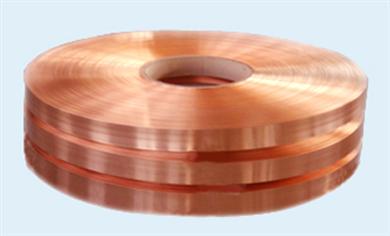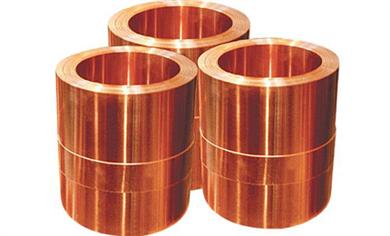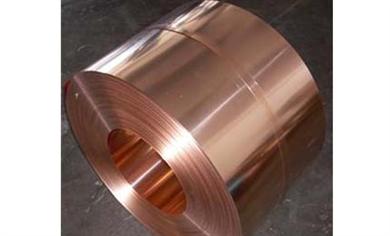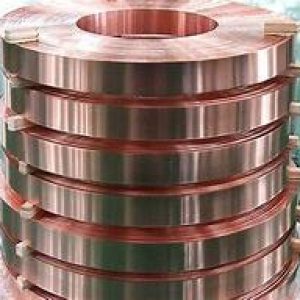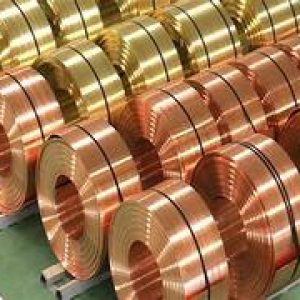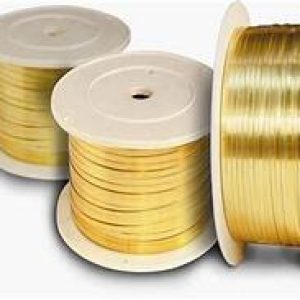Copper Tape Description
Copper tape: Copper tape is a relatively pure copper. It fully demonstrates the ductility, conductivity and corrosion resistance of metallic copper and is used in the electrical industry.
Cable tape: There is a protective layer of copper inside the outer insulation layer of the cable to protect the wires inside.
Transformer tape/high voltage bag: The transformer copper tape uses high-quality electrolytic copper or special copper alloy as the raw material to fully ensure the conductive performance of the transformer copper tape. The conductivity is 97%-102%IACS. It is used in the dry type of high and low voltage transformer lines in the power industry. Transformers, communication cables for shallow sea, deep sea, long-distance multi-channel and microwave systems.
Copper waterstop: widely used in water conservancy project diversion tunnels, dam factories, reservoirs, etc., mainly to prevent water seepage.
Copper Tape Performance
Copper tape: high purity, fine tissue, and extremely low oxygen content. It has good electrical conductivity, thermal conductivity, corrosion resistance and processing properties, and can be welded and brazed.
Red copper waterstop material: red copper (T2) with a copper content of more than 99.9%, an elongation of more than 30%, and a tensile strength of more than 200MPa
Copper Tape Features
Copper tape: It has good electrical conductivity and plasticity, but poor strength and hardness.
Cable tape: good conductivity and plasticity.
Transformer tape/high voltage tape: conductivity 97%-102%IACS, used in dry-type transformers for high and low voltage substation lines in the power industry.
Copper Tape Product Parameters
Tensile strength: (Rm/MPa)≥295
Rockwell hardness: (HRF)≥65
Elongation: (%) ≥3
Red copper waterstop material: red copper (T2) with a copper content of more than 99.9%, an elongation of more than 30%, and a tensile strength of more than 200MPa
Copper Tape Specifications
| Variety | Grade | Statue | Specifications (mm) | Guideline | |
| Thickness | Width | ||||
| Strip | T2 | Y Y2 Y4 M |
0.05~0.2 | ≤300 | GB/T2059-2000 |
| >0.2~0.49 | ≤600 | ||||
| 0.5~2.0 | ≤1000 | ||||
| Oxygen-free copper strip | TU1 TU2 | Y Y2 Y4 M |
0.05~0.2 | ≤300 | |
| >0.2~0.49 | ≤600 | ||||
| 0.5~2.0 | ≤1000 | ||||
| Phosphorus deoxidized copper strip | TP1 TP2 | Y Y2 Y4 M |
>0.2~0.49 | ≤600 | |
| 0.5~2.0 | ≤1000 | ||||
| Silver copper strip | TAg0.1 | Y2 | 0.8~1.5 | ≤300 | Corporate standards |
| Copper tape for cables | T2 | Y | 0.1~0.25 | ≤300 | GB/T11091-89 |
| M | 0.26~0.8 | ≤300 | Corporate standards | ||
| Coaxial cable tape | T2 | M | 0.25~0.3 | 40~160 | |
| >0.3~0.5 | 40~160 | ||||
| Composite tape for cables | T2B | M | 0.36 | ≤300 | |
| T2 conductive cable tape | T2 Conductive | M | 0.25~0.3 | 40~200 | |
| >0.3~0.4 | 40~200 | ||||
| Oxygen-free copper
cable ties |
C10200 | M | 0.2~-0.25 | 38~83 | |
| Special-shaped copper
Alloy belt |
LE122 LE192 (TAg0.1) |
Y2 | 0.38/1.27 | 40/66 | Corporate standards |
| 0.38/1.27 | 40/68 | ||||
| 0.6/1.5 | 56/92 | ||||
| 0.6/2.0 | 59/97 | ||||
| 0.6/1.6 | 53/104 | ||||
| Transformer copper strip | TU1 T2 (T2 Conductive) | M | 0.1~<0.5 | ≤600 | GB/T18813-2002 |
| 0.5~2.5 | ≤1000 | ||||
| Thin water tank belt | To | Y | 0.05~0.06 | 25~80 | Corporate standards |
| Frame material strips | LE192 LE122 LE194 |
Y Y2 Y4 T | 0.2~0.5 | 20~305 | |
| >0.5~1.5 | 30~305 | ||||
| Radiator strip | TP2B | M Y4 | 0.3~0.6 | 15~40 | |
| Silver-containing oxygen-free copper strip | C10500 | M 3/4Y | 0.45~2.8 | ≤600 | |
| Pure copper foil | T1 T2 | Y | GB/T5187-85 | ||
| Note: Negotiable if not within the scope | |||||
Copper Tape Application
In the field of electronics, copper tape is widely used as conductive materials in electronic equipment, such as connectors, cables, displays, and relays due to its excellent conductive properties. In addition, copper tape is also an important component of communication cables and is used in mobile communications, broadband networks, satellite communications and other fields. Its high strength and high ductility can effectively ensure the stability and reliability of the cable, and can also improve signal transmission. speed and quality.
In the power industry, copper tape is widely used in the manufacture of conductor materials for wires and cables. Its excellent conductive properties ensure the stability and efficiency of power transmission. At the same time, copper strips are also widely used in the refrigeration industry, such as making pipes and condensers for refrigeration equipment. Its good thermal conductivity helps to improve the refrigeration effect.
Copper strips are also widely used in and can be used to make building decoration materials such as skirting boards, ceilings, and curtain walls. Due to its excellent thermal and electrical conductivity, it can effectively convert sunlight and current into heat and electricity, thereby improving the energy efficiency of the building. In addition, copper strips also play an important role in solar roof systems, which can effectively improve the energy conversion efficiency of solar roof systems.
Company Profile
Copper Channel is a trusted global chemical material supplier & manufacturer with over 12-year-experience in providing super high-quality copper and relatives products.
The company has a professional technical department and Quality Supervision Department, a well-equipped laboratory, and equipped with advanced testing equipment and after-sales customer service center.
If you are looking for high-quality copper products, please feel free to contact us or click on the needed products to send an inquiry.
Payment Methods of Copper Tape
L/C, T/T, Western Union, Paypal, Credit Card etc.
Shipment of Copper Tape
It could be shipped by sea, by air, or by reveal ASAP as soon as repayment receipt.
FAQ
What is the production process of copper strips?
Answer: The production process of copper strips includes multiple steps such as smelting, casting, hot rolling, cold rolling, annealing, and finishing. By controlling parameters such as temperature, pressure, and cooling rate, copper strips with required properties can be obtained.
How to judge the quality of copper strip?
Answer: The quality of copper strips can be judged by examining its appearance (such as surface finish, flatness), physical properties (such as conductivity, tensile strength), and chemical composition.
Why does the copper strip bend and deform during use?
Answer: The bending deformation of copper strips during use may be caused by improper annealing process, uneven stress distribution during cold working, excessive impurities inside the material, or external environmental influences (such as temperature changes).
What is the reason for oxidation or corrosion on the surface of copper strip?
Answer: Oxidation or corrosion on the surface of the copper strip may be caused by a humid storage environment, contact with corrosive substances, improper surface treatment, or poor corrosion resistance of the material itself.
How to choose the appropriate copper strip specifications?
Answer: Choosing appropriate copper strip specifications needs to be considered based on specific application scenarios, such as current capacity, mechanical strength, usage environment and other factors. Cost factors also need to be considered.
Why does the copper strip break during use?
Answer: The fracture of the copper strip during use may be caused by defects in the material itself (such as pores, cracks), stress concentration during processing, harsh use environment (such as high temperature, corrosion), etc.
How to store and maintain copper strips?
Answer: When storing and maintaining copper strips, ensure that the environment is dry and ventilated, and avoid contact with corrosive substances. For long-term storage of copper strips, regular inspection and maintenance should be carried out to ensure stable performance.
What factors affect the price of copper strips?
Answer: The price of copper strips is affected by many factors, including raw material prices, complexity of production processes, market demand and supply, fluctuations in international copper prices, etc. The prices of copper strips of different specifications and qualities will also vary.
